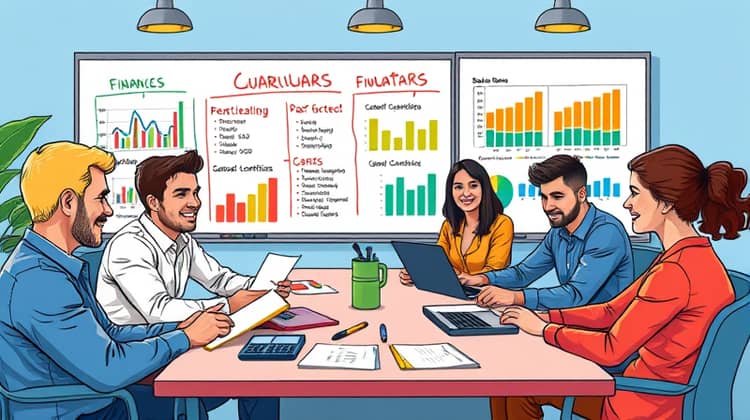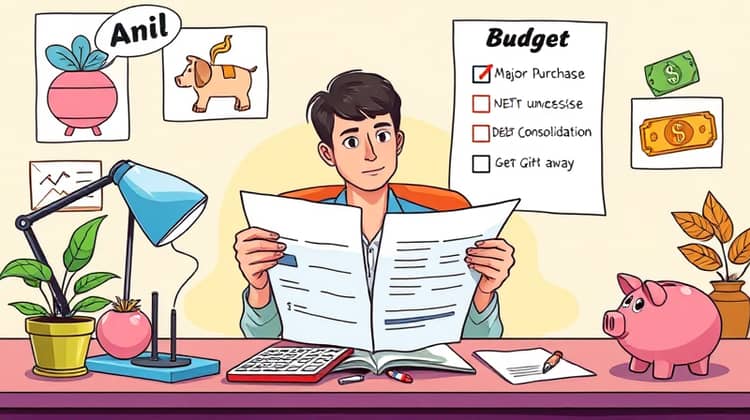In today's world, personal loans can be a helpful financial tool, particularly when it comes to making major purchases. Whether you're looking to buy a car, finance home renovations, or cover medical expenses, understanding how to use personal loans effectively can make a big difference. Here are five essential tips to consider before committing to a personal loan for your significant purchase.
1. Assess Your Financial Situation

Before taking out a personal loan, it is crucial to evaluate your overall financial situation. This involves understanding your income, expenses, and how much money you can afford to borrow. Take a close look at your monthly budget to determine how a new loan payment will fit in without straining your finances.
Additionally, you should check your credit score since your credit rating will play a significant role in determining the interest rate and terms of the loan. A higher score usually means lower interest rates, which can save you a substantial amount in the long run.
Lastly, consider any existing debts you have. Applying for a new loan while already in debt can lead to a higher risk of default, which could harm your credit score even further. It’s essential to ensure that taking on more debt won't compromise your financial health.
- Calculate your monthly income and expenses.
- Check your credit report and score.
- List any existing loans and debts you currently have.
Taking the time to thoroughly assess your financial situation can help you avoid unnecessary debt and stress. It also sets a solid foundation for your decision-making process when it comes to obtaining a personal loan.
2. Compare Loan Options

Not all personal loans are created equal; they come with different interest rates, repayment terms, and fees. Therefore, it's essential to shop around and compare multiple loan options from various lenders to find the best fit for you.
Consider exploring not just banks, but also credit unions, online lenders, and peer-to-peer lending platforms. Each lender might offer different benefits, such as flexible repayment plans or lower interest rates, which could impact your loan choice.
- Research multiple lenders to determine interest rates.
- Look for additional fees associated with the loan.
- Compare repayment terms to see which fits your budget best.
- Read reviews or testimonials from other borrowers.
By gathering a variety of options, you can make an informed decision that best suits your financial conditions and goals. A thorough comparison helps ensure you find the most affordable and fitting loan for your major purchase.
3. Understand the Terms and Conditions

Once you have narrowed down your loan options, it's crucial to read and understand the terms and conditions of each loan carefully. This includes the interest rate, any origination fees, and what happens if you miss a payment.
Furthermore, consider the total cost of the loan over its entire term. Knowing the APR (annual percentage rate) will help you understand the impact of the loan on your finances in the long run.
- Identify the interest rate and whether it's fixed or variable.
- Review any fees associated with the loan (e.g., origination fees or prepayment penalties).
- Understand the payment schedule and minimum monthly payment required.
Misunderstanding any terms could lead to unexpected costs or consequences. When in doubt, ask the lender for clarification, as they are usually willing to help explain their terms.
4. Have a Repayment Plan

Creating a well-thought-out repayment plan is a crucial step in managing your personal loan. Make sure your plan includes how much you'll pay each month and when payments will start. Consider your income and other financial obligations to determine how much you can realistically commit to your loan payments.
Moreover, it’s wise to have a contingency plan in case of unexpected expenses, such as job loss or medical emergencies. This could involve saving an emergency fund or finding ways to increase your income.
- Determine your monthly payment amount.
- Set a date for when payments will start.
- Identifying ways to increase income in case of emergencies.
A solid repayment plan not only helps ensure you stay on track but also protects your credit score by reducing the risk of missed payments. Remember, timely repayment is key to maintaining good financial health.
5. Use the Loan Responsibly

Using your personal loan responsibly is vital to achieving financial stability. Once you've secured your loan, it's essential to stick to the purpose for which you borrowed it, whether it was to make a major purchase or consolidate debt.
Avoid using your personal loan for non-essential expenses or excessive luxuries, as this can lead to a cycle of debt that can be challenging to escape.
- Stick to your original loan purpose.
- Avoid using loan funds for unnecessary expenses.
- Make consistent payments to uphold responsible borrowing.
Being disciplined in your loan usage will help you maintain financial health and repay your loans on time. The objective is to enhance your financial strength, not create additional burdens.
Conclusion

In conclusion, personal loans can be an excellent tool for financing major purchases when used properly. However, taking a responsible approach to borrowing is crucial, starting from assessing your financial position to understanding the specific terms of your loan.
Always compare options, understand what you're signing up for, and ensure you have a solid repayment strategy in place. By following these tips, you can make personal loans work for you, turning them into an asset rather than a financial burden.














